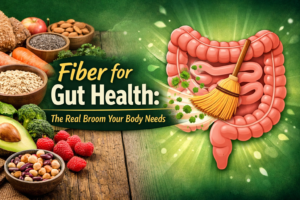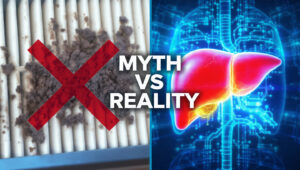All 10 best foods for brain health arranged around brain icon
Discover the 10 best foods for brain health, backed by science, to boost memory, focus, and mental clarity naturally.
Your brain is your command center. It controls your thoughts, emotions, and every movement. Just like the rest of your body, it needs the right fuel to work at its best. The good news? Certain foods can sharpen your memory, boost your mood, and even protect against cognitive decline.
In this guide, we’ll explore the 10 best foods for brain health, why they work, and how you can add them to your meals. All backed by research and trusted sources.
1. Fatty Fish – Omega-3 Powerhouse
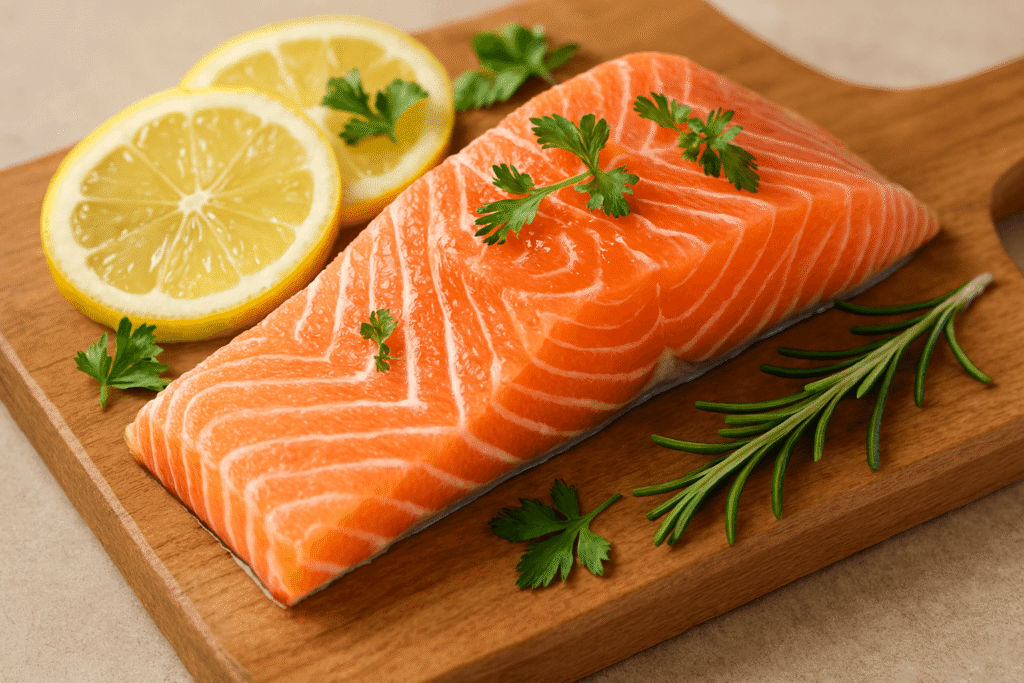
Fatty fish like salmon, trout, and sardines are loaded with omega-3 fatty acids, essential for brain function. Omega-3s help build brain and nerve cells, improving memory and learning.
A diet rich in omega-3 is linked to a lower risk of Alzheimer’s disease and slower mental decline.
Science says: According to Harvard T.H. Chan School of Public Health, omega-3s are crucial for maintaining healthy brain cells and may improve cognitive performance.
How to add it: Grill salmon, make tuna salad, or try sardines on whole-grain crackers.
2. Blueberries – Antioxidant Superstars
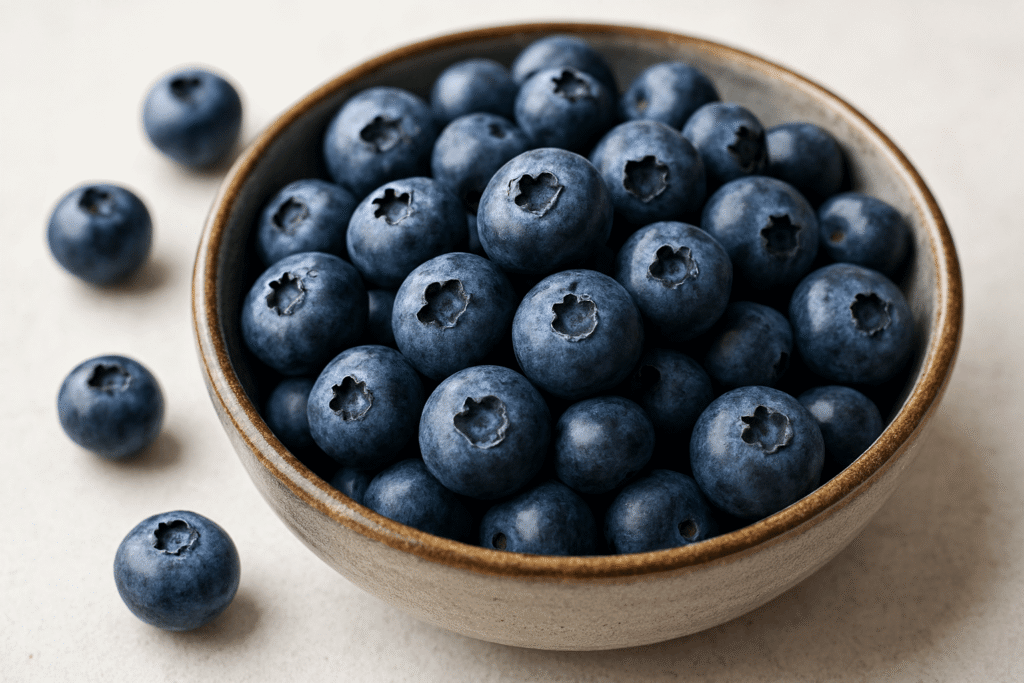
Blueberries are small but mighty. They contain antioxidants that fight oxidative stress, which can damage brain cells. They also reduce inflammation, a major contributor to brain aging.
Science says: A study from the National Institutes of Health (NIH) shows that blueberries improve communication between brain cells and boost memory.
How to add it: Toss them into your morning oatmeal, blend them into smoothies, or snack on them fresh.
3. Broccoli – Brain-Boosting Veggie
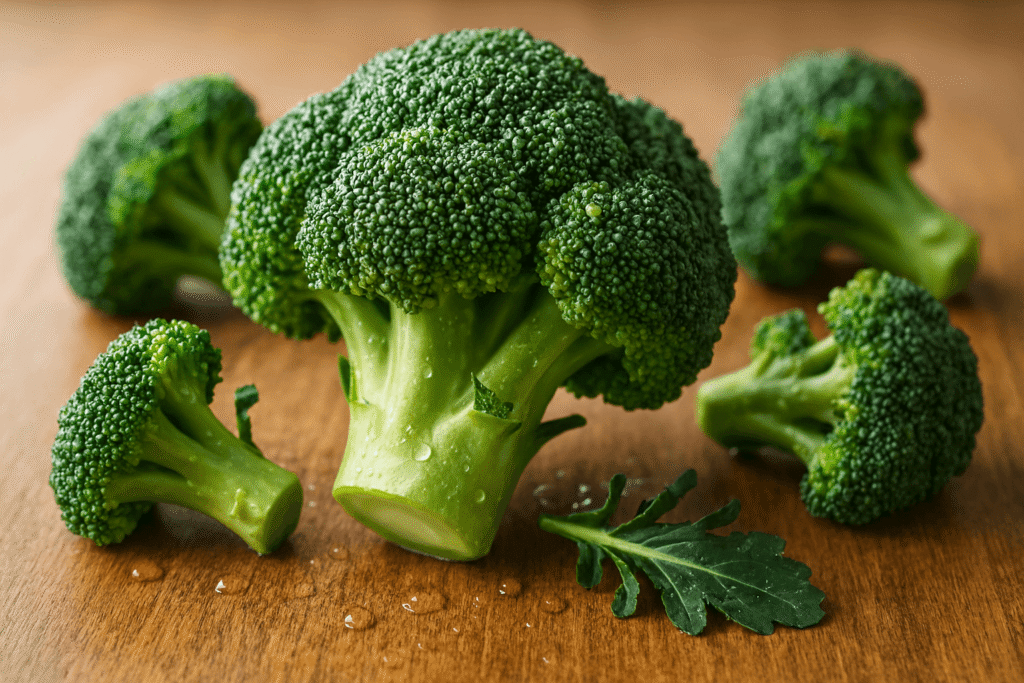
Broccoli is high in antioxidants and vitamin K, which is known to support brain health. Vitamin K is essential for forming sphingolipids, a type of fat found in brain cells.
Science says: Research published in Frontiers in Aging Neuroscience shows that higher vitamin K intake is linked to better memory in older adults.
How to add it: Steam, roast, or stir-fry with garlic for a nutrient-packed side dish.
4. Dark Chocolate – Sweet Brain Treat
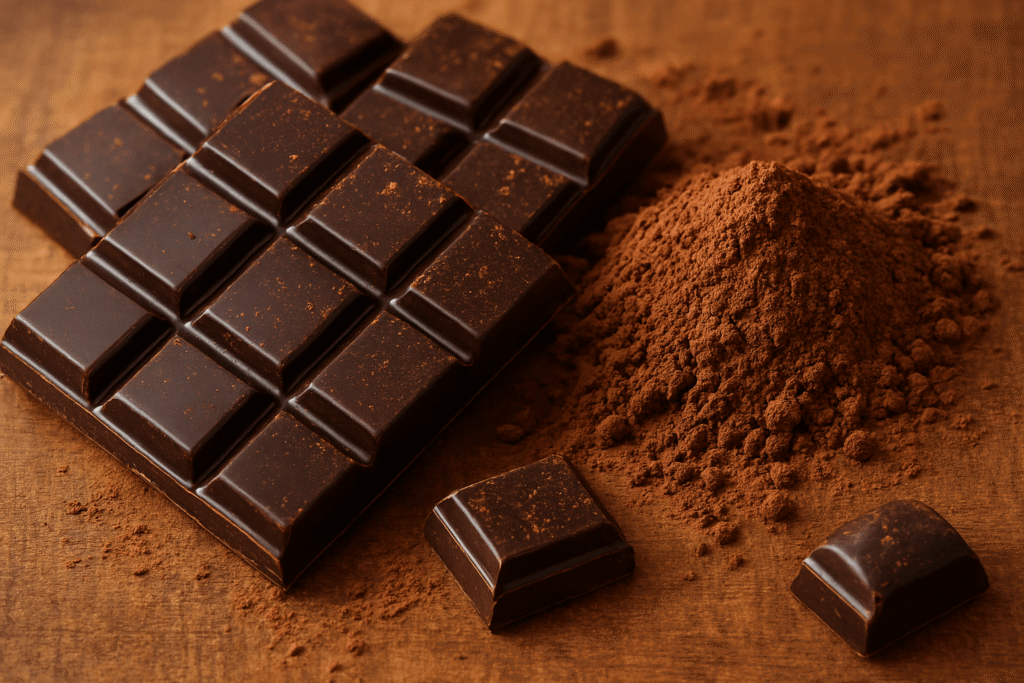
Dark chocolate (70% cocoa or higher) is rich in flavonoids, caffeine, and antioxidants. Flavonoids gather in brain areas responsible for learning and memory, enhancing neuron function.
Science says: A study in the Journal of Nutrition found that moderate dark chocolate consumption can improve memory and mood.
How to add it: Enjoy a small square as dessert, or sprinkle cocoa powder over yogurt.
5. Nuts – Brain-Friendly Fats
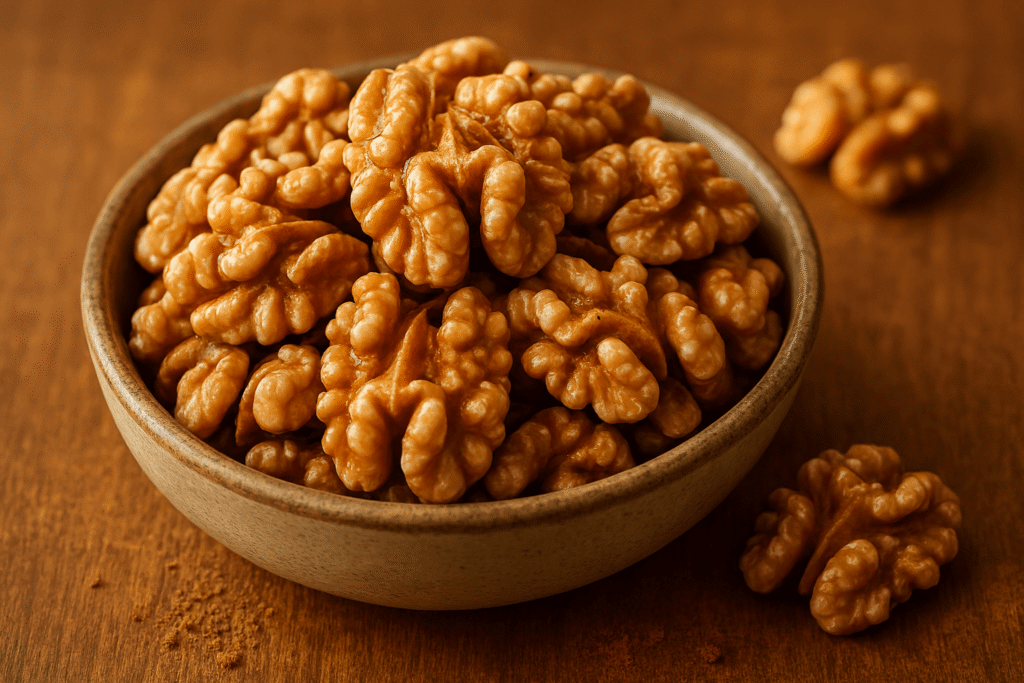
Nuts, especially walnuts, are excellent for brain health. They contain healthy fats, antioxidants, and vitamin E, which protect brain cells from oxidative stress.
Science says: According to the Alzheimer’s Research & Prevention Foundation, regular nut consumption is linked to better memory and slower cognitive decline.
How to add it: Snack on mixed nuts, blend them into smoothies, or sprinkle them over salads.
6. Coffee – Focus Fuel

Coffee lovers, rejoice! Caffeine in coffee blocks adenosine, a brain chemical that makes you feel sleepy, boosting alertness and concentration. Coffee is also rich in antioxidants.
Science says: Research from the Johns Hopkins University School of Medicine shows caffeine may improve memory consolidation.
How to add it: Enjoy a cup in the morning or early afternoon to avoid sleep disruption.
7. Eggs – Nutrient-Rich Brain Boost
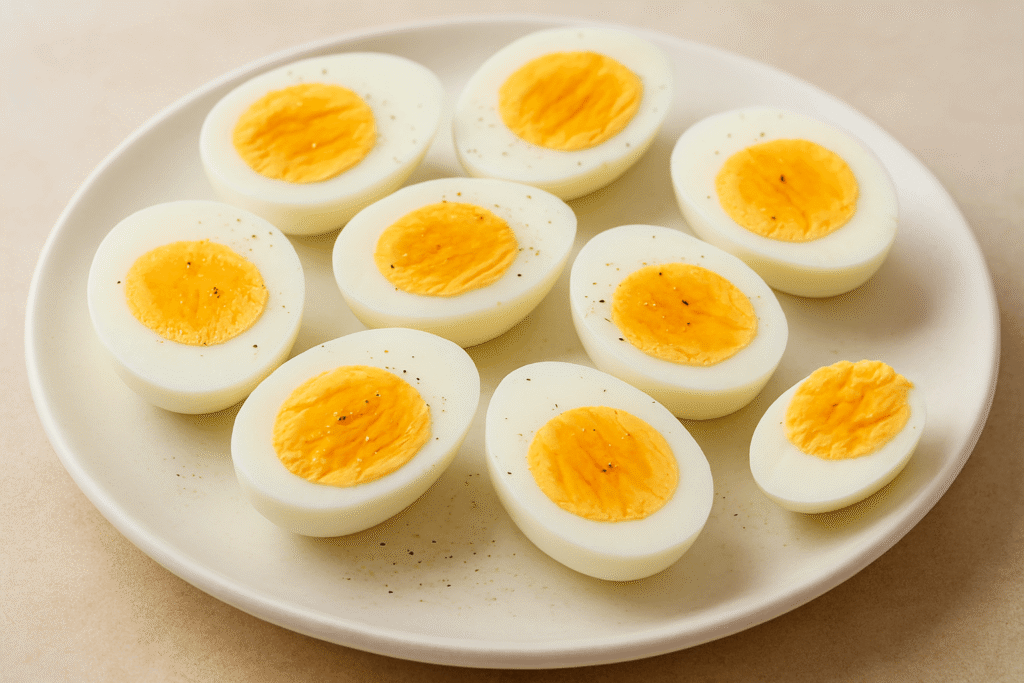
Eggs are packed with brain-healthy nutrients like choline, vitamin B6, B12, and folate. Choline helps produce acetylcholine, a neurotransmitter important for mood and memory.
Science says: According to the National Institutes of Health (NIH), adequate choline intake is linked to improved cognitive performance.
How to add it: Have them boiled, scrambled, or as an omelet with veggies.
8. Pumpkin Seeds – Mineral Magic
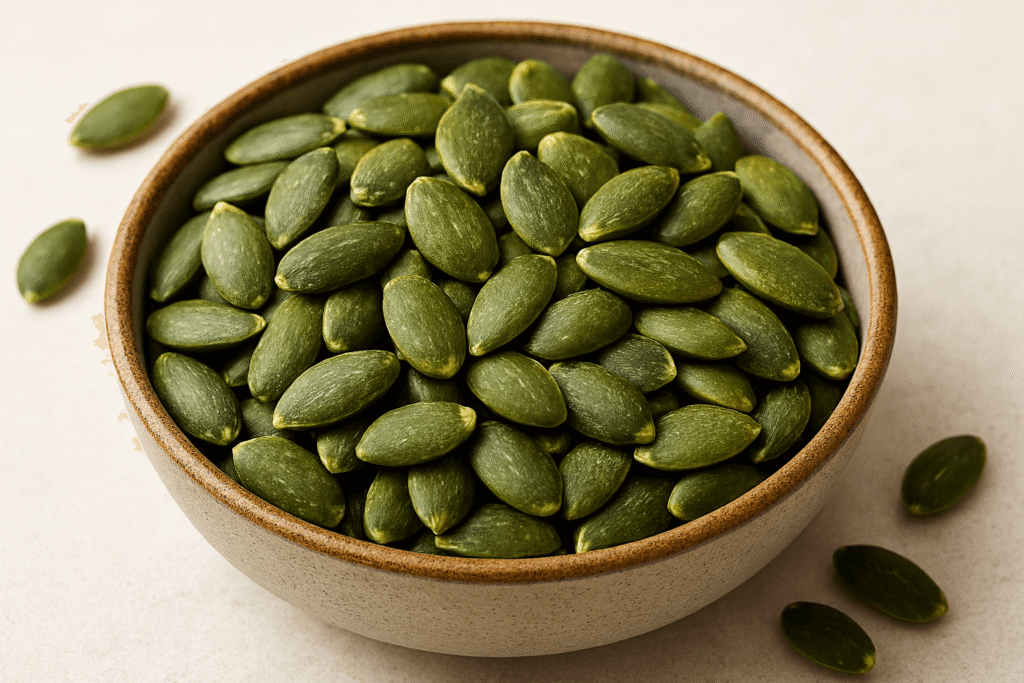
Pumpkin seeds are rich in magnesium, iron, zinc, and copper. These minerals are vital for nerve signaling and brain health.
Science says: Studies published in the Nutrients journal show magnesium plays a role in learning and memory, while zinc supports nerve communication.
How to add it: Sprinkle on salads, add to granola, or eat roasted as a crunchy snack.
9. Oranges – Vitamin C Boost
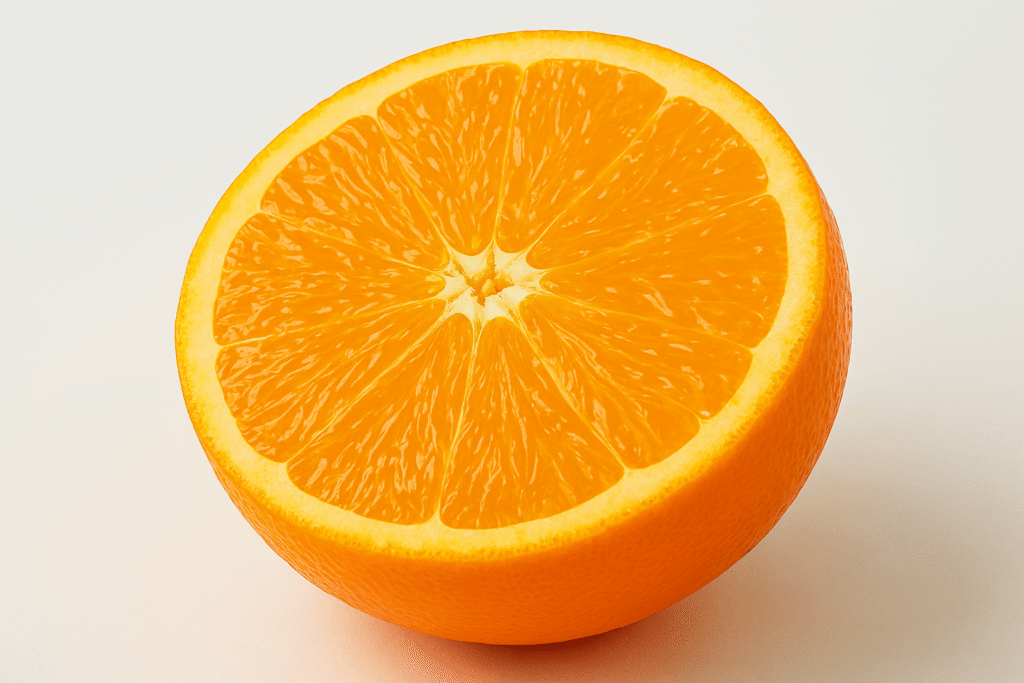
One medium orange provides all the daily vitamin C your body needs. Vitamin C helps prevent mental decline and protects against age-related brain damage.
Science says: According to Harvard Health, vitamin C is a key antioxidant that fights oxidative stress in brain cells.
How to add it: Eat fresh, blend into smoothies, or use the zest for flavoring dishes.
10. Green Tea – Calming Clarity
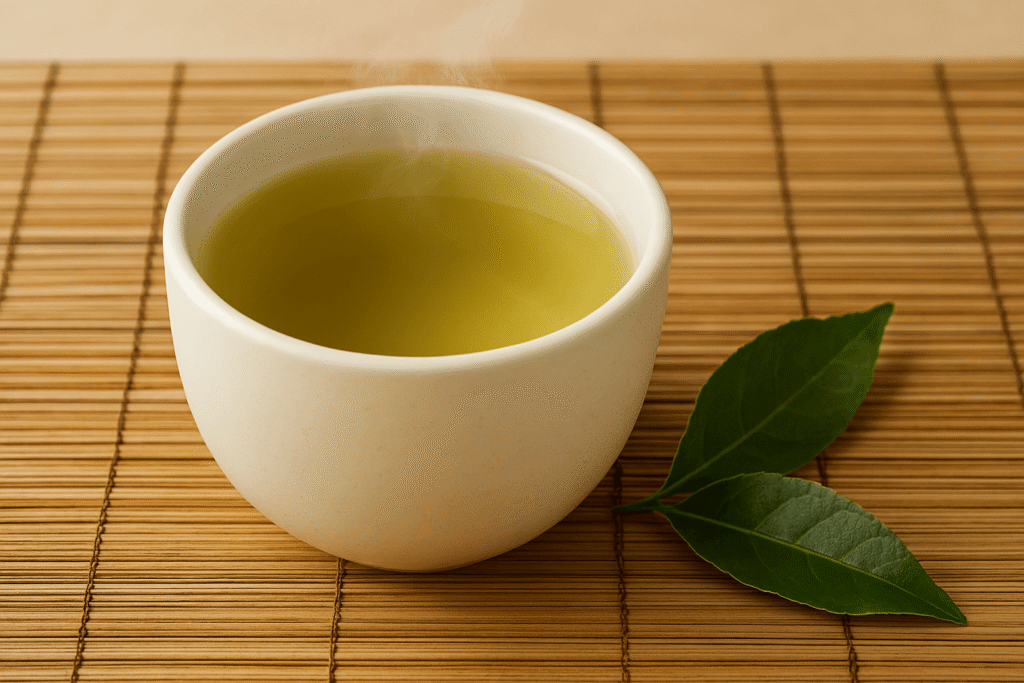
Green tea contains caffeine for alertness and L-theanine, an amino acid that increases alpha waves in the brain, promoting relaxation without drowsiness.
Science says: Research from Nutritional Neuroscience shows green tea can enhance working memory and cognitive performance.
How to add it: Enjoy hot or iced, or add matcha powder to recipes.
Tips for Maximizing Brain Health
- Stay hydrated – Even mild dehydration can affect brain function.
- Balance your diet – Include a mix of healthy fats, lean proteins, and complex carbs.
- Get enough sleep – Sleep is essential for memory consolidation.
- Exercise regularly – Physical activity increases blood flow to the brain.
- Manage stress – Meditation and breathing exercises can protect your brain from stress damage.
Summary – Eat Smart for a Smarter Brain
Here’s a quick recap of the 10 best foods for brain health:
- Fatty Fish – Omega-3 boost
- Blueberries – Antioxidant-rich
- Broccoli – Vitamin K powerhouse
- Dark Chocolate – Flavonoid-rich treat
- Nuts – Healthy fats and vitamin E
- Coffee – Energy and focus
- Eggs – Choline and B vitamins
- Pumpkin Seeds – Mineral-rich snack
- Oranges – Vitamin C protection
- Green Tea – Focus and calm
By adding these foods to your daily meals, you’re not just eating — you’re investing in a sharper mind, better mood, and long-term brain health.
Disclaimer
This article is intended for general informational purposes only. It is not a substitute for professional medical advice, diagnosis, or treatment. Always consult your physician or a qualified healthcare provider before making any changes to your diet, especially if you have existing medical conditions or are taking medication.
Call to Action
Want to boost your focus, memory, and mental clarity naturally? Start by adding these brain-friendly foods to your meals today! 🍊🐟
If you found this guide helpful, share it with your friends and family, because a healthy mind is worth sharing. And don’t forget to subscribe to our newsletter for more science-backed nutrition tips.
